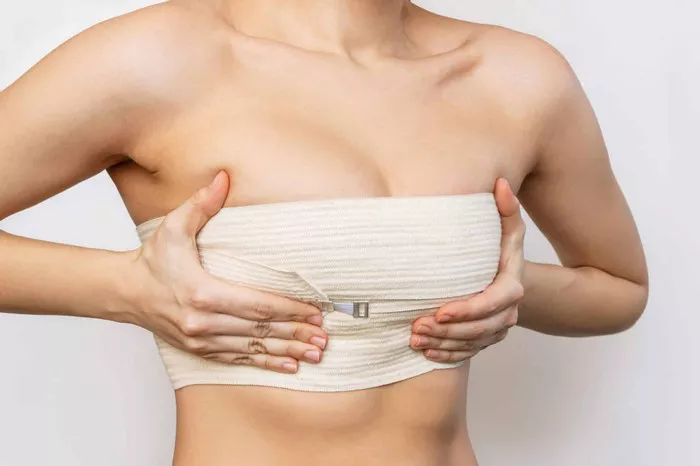Breast implants are a popular cosmetic surgery procedure that can enhance the size and shape of the breasts. However, like any medical device, breast implants have a limited lifespan and may need to be replaced over time. In this article, we will explore the signs that indicate when breast implants need replacing, the reasons for replacement, and what to expect during the procedure.
Signs That Breast Implants Need Replacing
Breast implants are not designed to last a lifetime, and over time they may need to be replaced. Here are some signs that indicate when breast implants need replacing:
Changes in breast shape or size: Over time, breast implants may shift or change position, causing changes in breast shape or size. If you notice changes in the appearance of your breasts, such as sagging or asymmetry, it may be time to consider replacing your breast implants.
Pain or discomfort: If you experience pain or discomfort in your breasts, it may be a sign that your breast implants are damaged or have ruptured.
Capsular contracture: Capsular contracture is a condition that occurs when scar tissue forms around the breast implant, causing the breast to become hard and painful. If you experience capsular contracture, it may be necessary to replace your breast implants.
Rupture or leakage: If your breast implant ruptures or leaks, it is important to have it replaced as soon as possible. Ruptured or leaking implants can cause pain, discomfort, and other complications.
Age of the implants: Breast implants are not designed to last a lifetime, and over time they may need to be replaced. The lifespan of breast implants varies depending on the type of implant used and other factors.
Reasons for Breast Implant Replacement
There are several reasons why breast implants may need to be replaced. These reasons include:
Cosmetic reasons: Over time, breast implants may shift or change position, causing changes in breast shape or size. If you are unhappy with the appearance of your breasts, it may be necessary to replace your breast implants.
Medical reasons: Breast implants may need to be replaced for medical reasons, such as rupture, leakage, or capsular contracture.
Age of the implants: Breast implants are not designed to last a lifetime, and over time they may need to be replaced.
Lifestyle changes: Lifestyle changes, such as weight gain or pregnancy, may cause changes in breast size or shape that require breast implant replacement.
What to Expect During Breast Implant Replacement
Breast implant replacement is a surgical procedure that involves removing the old breast implants and replacing them with new ones. The procedure is typically performed under general anesthesia and takes 1-2 hours to complete.
During the procedure, the surgeon will make incisions in the breast area and remove the old breast implants. The surgeon will then insert the new breast implants and close the incisions with sutures or surgical tape.
After the procedure, you may experience swelling, bruising, and discomfort. You will need to wear a supportive bra for several weeks and avoid strenuous activity until your surgeon gives you the okay to resume normal activities.
Conclusion
Breast implants are a popular cosmetic surgery procedure that can enhance the size and shape of the breasts. However, over time breast implants may need to be replaced due to changes in breast shape or size, pain or discomfort, capsular contracture, rupture or leakage, or the age of the implants. If you are experiencing any of these signs, it may be time to consider breast implant replacement. By understanding the signs that indicate when breast implants need replacing, you can make an informed decision about your breast health and cosmetic goals.
FAQs
1. How do you know when it’s time to replace your breast implants?
There are several signs that may indicate the need for breast implant replacement or revision surgery. These signs include changes in breast shape or size, implant rupture or leakage (which may cause pain, swelling, or changes in breast appearance), capsular contracture (when scar tissue around the implant tightens and becomes firm), implant malposition, or dissatisfaction with the aesthetic outcome of the initial surgery. Regular follow-up appointments with your plastic surgeon and imaging tests such as mammograms or MRIs can help detect any issues with breast implants.
2. How do you know if your breast implants are going bad?
Signs that your breast implants may be experiencing issues include changes in breast appearance or texture, such as asymmetry, distortion, or visible rippling or wrinkling of the skin. Additionally, symptoms like pain, swelling, or discomfort in the breast area, especially if accompanied by redness or warmth, may indicate problems with the implants. If you notice any unusual changes or symptoms, it’s essential to consult with your plastic surgeon promptly for evaluation and appropriate management.
3. What happens when breast implants get old?
As breast implants age, they may be more prone to certain complications such as implant rupture, capsular contracture, or changes in breast appearance. Over time, the outer shell of the implant may weaken or degrade, increasing the risk of rupture or leakage of the implant contents. Additionally, changes in breast tissue or the surrounding anatomy due to aging or weight fluctuations can affect the appearance and feel of breast implants. Regular monitoring and follow-up with a plastic surgeon can help detect and address any issues with aging breast implants.
4. What is the life expectancy of breast implants?
The lifespan of breast implants can vary depending on factors such as the type of implant, surgical technique, individual physiology, and lifestyle factors. While breast implants are not considered lifetime devices, many manufacturers provide warranties ranging from 10 to 20 years. However, it’s essential to understand that implants may require replacement or revision surgery at some point due to issues such as implant rupture, capsular contracture, or changes in personal preferences. Regular follow-up appointments with your plastic surgeon can help assess the condition of your breast implants and determine if replacement or revision surgery is necessary.


